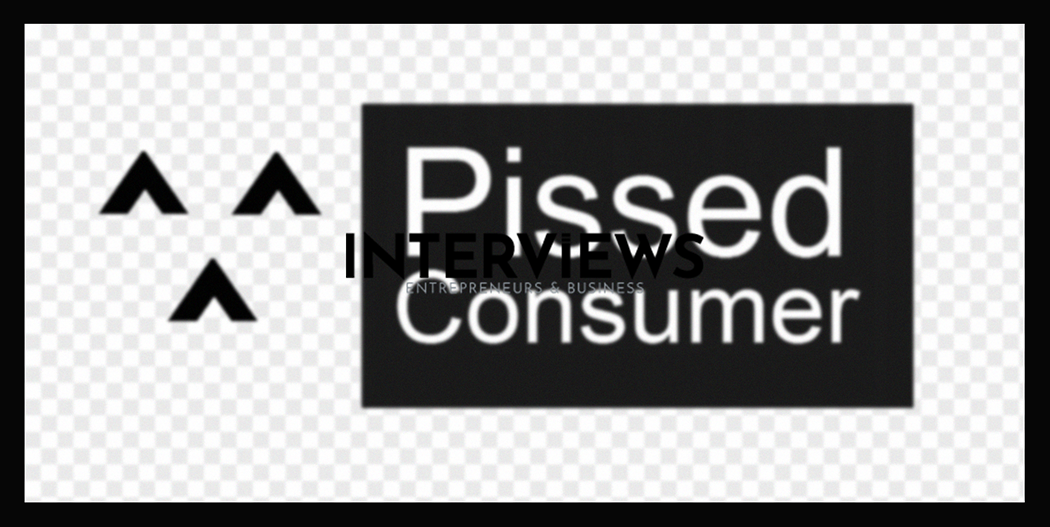Is PissedConsumer Legit? Is That Website Trustworthy? Let’s Investigate.
Ever felt the urge to vent about a company that messed up your order or ignored your emails? Enter PissedConsumer.com. It’s the internet’s yelling booth for complaints. But before you craft your tale of woe, let’s ask: Is PissedConsumer legit? How do you tell if any website is trustworthy?
This is your internet trustworthiness guide. We’ll dissect PissedConsumer, provide legitimacy checklists, and share tips to avoid scams. Consider this your detective training, minus the trench coat (unless you’re into that).
PissedConsumer Under the Microscope: Legit Platform or Just a Gripe Fest?
Let’s dive into PissedConsumer. On the surface, it seems simple: a place for customers to share less-than-sparkling experiences. They have over 250,000 reviews, making them a heavyweight in search results. Google a company name with “reviews,” and PissedConsumer likely pops up.
The Trust Factor: Is Everyone On the Level?
Here’s the catch: PissedConsumer lacks strong security for verifying reviewers. They admit they don’t have a “robust verification process” for confirming reviewer identities. Uh oh. Without solid verification, all sorts of issues arise. This includes competitors slinging mud or disgruntled ex-employees sharing negativity. Not every review is from a genuine customer. Take everything with caution.
Accountability? Good Luck With That.
If you post a review (good or bad), can you delete your account later? Nope. Want to remove your review? Double nope. “You cannot delete your account,” and “you cannot remove reviews,” are clear statements. It’s like checking into a hotel with no checkout. Once you’re in, you’re stuck. This lack of control is less than ideal.
So, What’s the Point of PissedConsumer?
Despite these issues, PissedConsumer serves a purpose. It’s a platform for venting and sharing negative experiences. Think of it as a digital town square for frustrated customers. In that sense, it’s “legit” as a venting platform. Just remember that it’s skewed towards negativity and may lack balanced information due to verification problems.
Is This Website Safe? Your DIY Legitimacy Checklist
Let’s zoom out from PissedConsumer and discuss how to gauge any website’s trustworthiness. The internet is wild, and you must be your own sheriff.
Website Security: The Padlock Is Your Friend
First, look for the padlock in your browser’s address bar. Chrome, Safari, and Firefox use this icon for a secure connection (HTTPS). It means the site uses encryption to protect your data. Click the padlock to confirm if the security certificate belongs to the company you’re visiting. No padlock? Caution advised.
Company Legitimacy: Digging Deeper Than the Homepage
A slick website doesn’t equal legitimacy. Time to dig:
- Business Registration: Is the company legally registered? Most countries have databases for checking business registrations. A legitimate company should be registered where it claims. No registration info? Red flag.
- Online Presence & Social Media: Does the company have a polished website? Typos and broken links are bad signs. Check for active social media links on their site. A strong online presence and customer interaction usually indicate reliability.
- Customer Service & Transparency: Try contacting them! Call or email. Are they responsive? Helpful? Legitimate companies are transparent about services and policies. Hidden fees and legal jargon are warning flags.
- Company Credit Score: Companies also have credit scores! Checking a credit score gives insights into financial health. It’s like a report card for businesses.
Trusted Site Checkers: Your Instant Vibe Check
Want a quick way to check a website’s reputation? Use tools that scan against databases of scams and malware. Just plug in the website URL, and these tools will check it against multiple sources. It’s like a background check for websites. If it comes back suspicious, steer clear.
Review Platforms: Crowdsourced Wisdom (with a Pinch of Salt)
PissedConsumer isn’t alone; other review platforms exist. Trustpilot, Google Reviews, Yelp, and social media show customer sentiments. Look for patterns in reviews. Are there consistent complaints? Are there positive reviews? Online reviews are just one piece of the puzzle but can provide valuable insights.
Domain Names: .com vs. .net and Beyond
While .com and .net aren’t inherently untrustworthy, approach them cautiously compared to .org (typically nonprofits) or .gov (government sites). Keep this in mind in your assessment.
Financial Firefighting: Canceling Subscriptions and Blocking Bogus Charges
Now let’s talk about your wallet. Even if a company is “legit,” you might face financial issues with subscriptions and payments.
Subscription Snafus? Take Control!
Free trials and discounted subscriptions can be tricky. They entice you in, and next thing you know, you’re charged for something forgotten. Pro tip: set calendar reminders! Mark your calendar days before trials end. This gives time to decide if you want to keep the subscription.
Unauthorized Charges? Time to Act.
If you spot an unauthorized charge, here’s your action plan:
- Contact the Company First: Before panicking, reach out to the company directly. Explain the situation and ask to stop charges. Sometimes it’s just an honest mistake.
- Contact Your Bank: If the company is uncooperative, involve your bank or credit card issuer.
- Request a Stop Payment Order: Tell your bank to stop future payments to this company. Request to block payments even without canceling directly.
- Dispute Unauthorized Charges: If charges persist after your request, dispute them immediately with your bank. They have procedures for unauthorized transactions.
Rocket Money: Your Financial Copilot?
Apps like Rocket Money promise to help manage subscriptions, negotiate bills, and track spending. Sounds great, right? Let’s look closer.
Rocket Money Features:
- Subscription Tracking & Cancellation: Their main function finds and cancels unwanted subscriptions.
- Bill Negotiation: They negotiate lower rates on your bills with certain providers.
- Spending Tracking & Budgeting: They analyze spending habits and budget creation.
- Credit Monitoring: You get access to credit scores and monitoring services.
The Good, the Bad, and Potentially Pricey:
- Convenience: It automates subscription management and bill negotiation, saving time.
- Potential Savings:Cancelling unused subscriptions and negotiating bills can lead to savings.
- Save money… in theory.
- Reliance on Third-Party Data: Rocket Money needs access to bank accounts and credit cards. Privacy alarms should be ringing.
- Potential for Unintended Charges: Users report unexpected charges or issues with cancellations via the app. Check fine print and reviews.
Rocket Money can help. But consider convenience versus privacy risks and costs. Is sharing financial data with a third-party app worth the savings? It’s a personal decision.
Company Trustworthiness Spotlight: Quick Takes on Specific Brands
Let’s review trustworthiness of some companies from the information:
| Company | Trustworthiness Summary |
| Paypenny | Safe and easy for transfers, uses secure technology, tracks transfers. |
| Trustpilot | Secure with strong encryption. Generally trustworthy for reviews (consider review context). |
| TicketOne | Potential scam risk. Be cautious with tickets. |
| .NET | Secure, reliable, high-performance platform. |
| Trust Guard | BBB Accredited, suggesting some reliability. |
| Nets Payment | Secure processing with tokenization. |
| TrustPay | Focuses on security, encryption, and fraud prevention. |
| Guard Me | Specializes in health insurance for international students. |
| Trust ID | Experts in identity checks. |
| Temu | Products real and delivered. Quality and ethical sourcing raise concerns. |
| Ticketmaster | Verified resale tickets are safe. Use official channels. |
| CNET | Reliable for tech news and reviews. Rated “Reliable, Analysis/Fact Reporting.” |
| ChatGPT | Generally safe, but be aware of biased generation. Use critically. |
CEO Spotlight: Who’s at the Helm?
For those curious about company leaders, here’s a list of CEOs:
| Company | CEO |
| WD Lab Grown Diamonds | Mike Grunza |
| Devo Technology | Marc van Zadelhoff |
| Paul Lafayet | Toni Younes |
| Huron | Mike Grunza |
| Mimecast | Marc van Zadelhoff |
| Edelman | Richard Edelman |
| Computer History Museum | Marc Etkind (starting April 2025) |
| ProPresenter (Renewed Vision) | Brad Weston (Founder & President) |
| Instagram (Co-founder) | Mike Krieger |
| Orlin & Cohen Orthopedics | Michael Passet |
| Slinger | Mike Ballardie |
| PissedConsumer.com | Michael Podolsky (Co-founder) |
Bonus Round: Internet Slang and Random Definitions – Just for Fun
Here are some definitions that emerged in the research:
- Smexy: A blend of “smart” and “sexy.” For someone intellectually and physically appealing.
- Chilean: Related to Chile, the country known for its shape and (delicious) wine.
- Petrus: Latin for “rock.” An expensive, highly sought-after Bordeaux wine.
- Rizz: Short for “charisma,” your ability to charm others.
- Brazzy: Slang for “crazy.” Because “crazy” lacked flair.
- Chile (in Black slang): Can refer to a Southern pronunciation of “child.”
- Petrus Wine (Explained): Why so pricey? Quality, limited production, unique conditions, high demand creates its legendary status and high prices. Perhaps stick to Chilean wine.
That’s it. A deep dive into PissedConsumer, website legitimacy, and vocabulary lessons included. Stay vigilant online. If it seems too good to be true, it likely is. Set reminders to cancel free trials. Your wallet will appreciate it.





